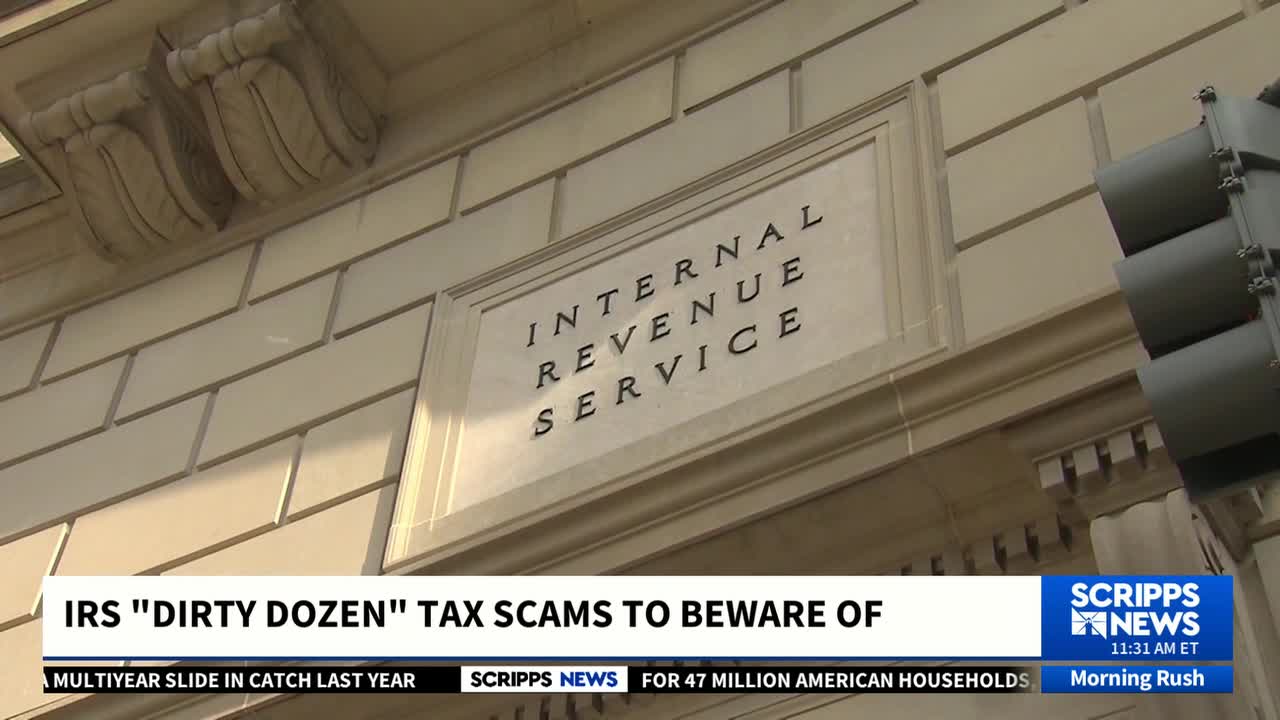Beware of tax scams: IRS unveils 2025 'Dirty Dozen' list to watch for

- One tax scam encourages people to create fake W-2 forms.
- Fake emails impersonate the IRS, state tax agencies, and software companies.
Fraud has no season, but scammers know that the days leading up to April 15 are a terrific time of the year to engage in tax scams and schemes.
So much so that the Internal Revenue Service each year rolls out what it calls its "Dirty Dozen" tax scams. This year's list includes many that I've reported in the past ‒ fake emails claiming to be from the IRS promising a phony tax refund, fake texts that use alarming language, such as "your account has now been put on hold" and imply you must "click here" to resolve issues with your taxes or the IRS, and "wildly inaccurate tax advice" that's proliferating on social media.
Anyone who is distracted when they're worrying about their tax refunds ‒ or how much they're going to owe in taxes ‒ can easily be misled into making the wrong move.
“Scammers are relentless, and they use the guise of tax season to try tricking taxpayers into falling into a variety of traps," said Terry Lemons, IRS communications senior adviser, in a statement issued Thursday.
Tax filers risk becoming victims of identity theft, giving access to their bank accounts to fraudsters, and even claiming tax credits that don't apply to them but will lead to dramatic delays for their legitimate tax refunds.
Here's a look at five warnings to heed from the 2025 "Dirty Dozen" scam list, as released by the IRS. Look out for:
'Bad social media advice'
The IRS said a growing concern in 2025 continues to involve all sorts of incorrect tax information on social media. The advice might sound legitimate to some, but honest taxpayers who follow it end up being hurt.
"Social media platforms routinely circulate inaccurate or misleading tax information, including on TikTok where people share wildly inaccurate tax advice," the IRS stated. Sometimes, fraudulent advice includes encouraging people to create or misuse W-2 forms to generate a bigger refund.
The IRS warns taxpayers who "knowingly file fraudulent tax returns that they could potentially face significant civil and criminal penalties."
Fake help for creating an IRS Individual Online Account
Hard to imagine, perhaps, but someone who offers to be helpful could be helping themselves to your tax information.
"Swindlers can pose as a 'helpful' third party and offer to help create a taxpayer's IRS Individual Online Account at IRS.gov," the IRS warned.
Many people create an online account with the IRS, for example, to get account transcripts. But this is something you do on your own ‒ not with the help of someone else.
"In reality, no help is needed, and the agency offers tips on how to sign up and avoid scams," the IRS states.
The IRS warns that third parties making these offers will "try to steal a taxpayer's personal information and try to submit fraudulent tax returns in the victim's name to get a big refund."
The 'bogus self-employment tax credit'
Forget about that tax tip you spotted on social media that suggests you claim a self-employment tax credit that doesn't exist.
"Promoters market it as a way for self-employed people and gig workers to get big payments for the COVID-19 pandemic period," according to the IRS.
"Similar to misleading marketing around the employee retention credit, there is inaccurate information being circulated that suggests many people qualify for the tax credit and payments of up to $32,000 when they actually do not."
Take a close look at any credit you don't understand and research whether the credit you just read about is actually one being abused by bad actors.
The IRS reviews such claims, and taxpayers who claim credits that are very limited to certain very specific situations often end up facing extra-long delays in getting their tax refunds.
The overstated withholding scam
A recent scheme circulating on social media, according to the IRS, will encourage you to fill out Form W-2, Wage and Tax Statement, or other forms like Form 1099-NEC and other 1099s with false income and withholding information.
The scheme involves making up "large income and withholding amounts, as well as the fictional employer supplying those amounts," the IRS said.
"Scam artists then instruct people to file the bogus tax return electronically in hopes of getting a substantial refund due to the large amount of fraudulent withholding."
Don't do it ‒ especially if you're already owed a legitimate refund. You're going to be terribly unhappy when you cannot even get the real money that you're owed.
The IRS will be reviewing such claims. "If the IRS cannot verify the wages, income or withholding credits entered on the tax return, the tax refund will be held pending further review."
Cybercriminals claiming to be 'new clients'
The IRS said it continues to see signs of an ongoing "new client" scam in 2025. Tax professionals are once again warned that they're being targeted by crooks and con artists.
The fake emails or texts are designed to appear as if they're being sent by a new, potential client. "Once the tax pro responds," the IRS said, "the scammer sends a malicious attachment or URL that can compromise the preparer's computer systems and allow the attacker to access sensitive client information."
Contact personal finance columnist Susan Tompor: stompor@freepress.com. Follow her on X @tompor.